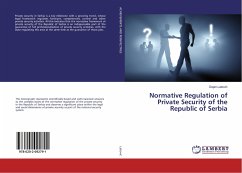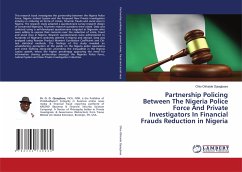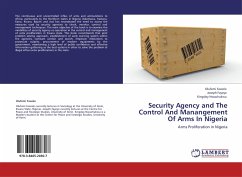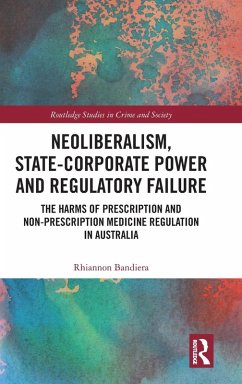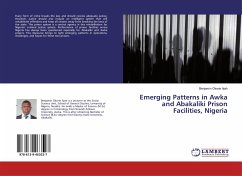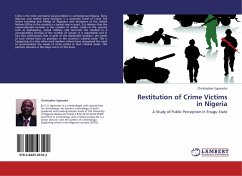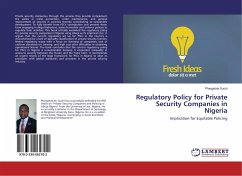
Regulatory Policy for Private Security Companies in Nigeria
Implication for Equitable Policing
Versandkostenfrei!
Versandfertig in 6-10 Tagen
33,99 €
inkl. MwSt.

PAYBACK Punkte
17 °P sammeln!
Private security companies through the services they provide complement the police in crime prevention, order maintenance, and general improvement of security in societies thereby contributing to sustainable development. To fully benefit from PSCs' contribution and prevent them from engaging in illegal behaviors, states formulate and enforce policies to regulate their activities. This book critically examined the regulatory policy for private security companies in Nigeria using Abuja as its empirical core. It argues that the current regulatory set up for PSCs in the country is characterized by...
Private security companies through the services they provide complement the police in crime prevention, order maintenance, and general improvement of security in societies thereby contributing to sustainable development. To fully benefit from PSCs' contribution and prevent them from engaging in illegal behaviors, states formulate and enforce policies to regulate their activities. This book critically examined the regulatory policy for private security companies in Nigeria using Abuja as its empirical core. It argues that the current regulatory set up for PSCs in the country is characterized by a lack of specialty classification of private security licenses; limited regulatory scope with a focus on licensing of companies; lack of uniform standards on training; and high cost of/or difficulties in obtaining operational license. The book concludes that the current regulatory policy for PSCs in Nigeria is unsustainable because it engenders inequality in access to security between the "haves" and the "have nots". It recommends an urgent review of the legal framework for PSCs in Nigeria to align its provisions with global standards and practices in the private security industry.



